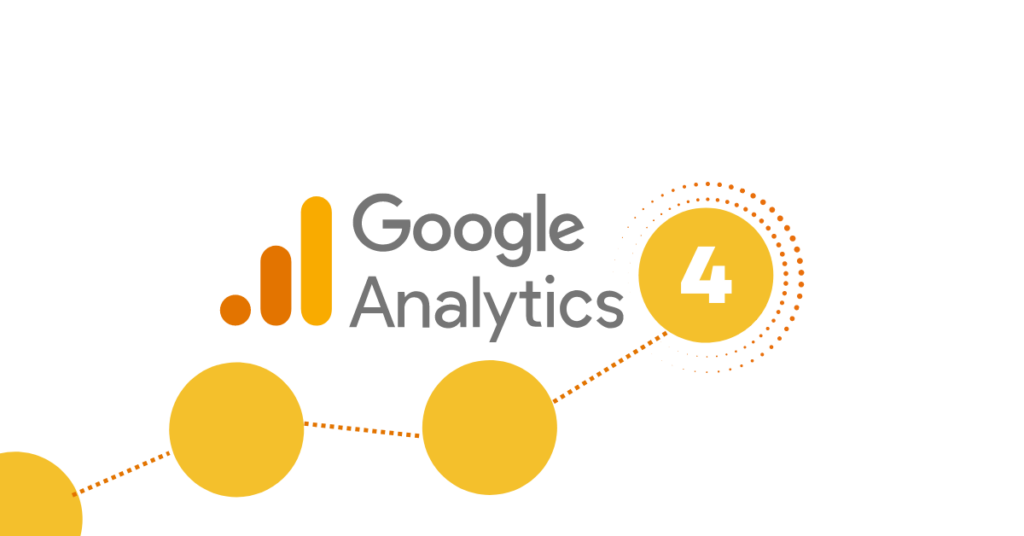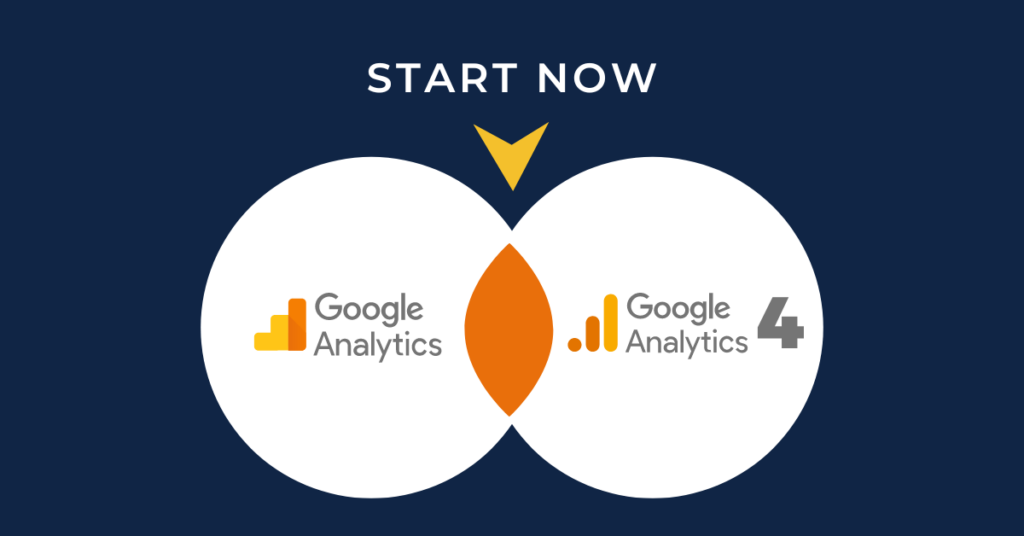The new Google Analytics 4 (GA4) is the latest version of Google’s popular website analytics platform. It offers a number of enhancements over previous versions, including Universal Analytics. If you’re currently using Google Analytics 3 (or earlier), it’s time to add GA4 into the mix!
In this blog post, we’ll show why it’s time to upgrade to Google Analytics 4 and take advantage of all its features. We’ll also discuss the differences between GA4 and Universal Analytics.
Should I upgrade to google analytics 4? If so, why now?
Yes, you need to set up a Google Analytics 4 account now because Google has formally announced that it will be sunsetting Universal Analytics on July 1, 2023. If you like to compare your current data with historical results, it’s important to set up Google Analytics 4 right away so you can have as much historical information in your account as possible (ideally one year of data). This means that you will want to set up Google Analytics 4 by July 1, 2022, so you can have a year’s worth of comparative information on record in GA4 as the platform progresses.
Should I delete my Universal Analytics account now?
No, we recommend running your Universal Analytics and Google Analytics accounts in parallel as long as possible while Google continues developing and refining the GA4 platform. In our opinion, it is still in its infancy at this point and cannot do some of the things that Universal Analytics can do for you currently. Also, the reporting side of Universal Analytics is still more user-friendly at this point for the average user.
What are the benefits of Google Analytics 4?
- Advanced customer journey tracking – when your visitors come to your site across multiple devices, GA4 will enable you to track their journey more effectively.
- Improved user engagement analysis – there is a new lifecycle section to break down the steps a user takes including acquisition, engagement, monetization and retention.
- Predicting customer actions and value – now that data privacy is on the rise GA4 uses artificial intelligence to formulate data modelling. Marketers now need to lean on trends and patterns as opposed to specific marketing attribution tactics.
- Pre-configured engagement tracking – now small businesses will get visibility into scroll tracking, click tracking, video engagement and file downloads right out of the box as opposed to hiring an expert to set this up for them.
- Better ROI on ad spend – by building more powerful audiences for your ad campaigns, GA4 uses its strength of being able to track users across multiple devices to refine how it builds audiences for you.
- Better preparation for the disappearance of cookies – GA4 uses smarter tracking features to fill in the gaps created by advances in user privacy.
- Easier goals and events setup – out of the box, GA4 is already tracking lots of events for you that needed to be manually set up in Universal Analytics. Being able to track application form submissions and eCommerce checkouts on another website will become simplified as well.
- Enhanced visualisations and reporting – you will now be able to create your own reports and save them as templates in the analysis hub.
- Lots of parameters – being able to enrich your data with additional details such as order values, the referring URL and where a purchase has been made is going to provide marketers with enriched data to make smarter decisions.
Our recommendation
Since GA4 is still in its early stages, we recommend setting it up to run in the background as it continues to evolve. In the meantime, this would be a smart time to build your GA4 skills so you can familiarize yourself with the platform.
Additionally, learning Google Data Studio will be a continuously good skill set as well because there will be a lot of data visualization opportunities on that platform. One of our colleagues has even predicted that Google Data Studio will be the tool in order to visualize your data from GA4. We will have to see how the future unfolds.
What if Google Analytics (in general) is too complicated for my micro-business?
Sometimes Google Analytics is too bulky and complex and unnecessary for a micro-business owner. There are paid solutions available on the market for basic website tracking including Fathom Analytics and Plausible Analytics. These solutions do not include third party cookies, so you won’t need cookie pop-up banners or GDPR consent on your website.
Getting started with transitioning your analytics
Whether you want to set up an analytics alternative, set up GA4 on your own or if you need help from an expert, the next step is definitely to make a decision on how you’re going to track your website data from July 1, 2023, and onwards.
Once you’ve made that decision and have opted to hire a Google Analytics expert, feel free to contact us today for a consultation. We can help you install GA4 via Google Tag Manager for your WordPress site and/or your eCommerce tracking for your online store.


